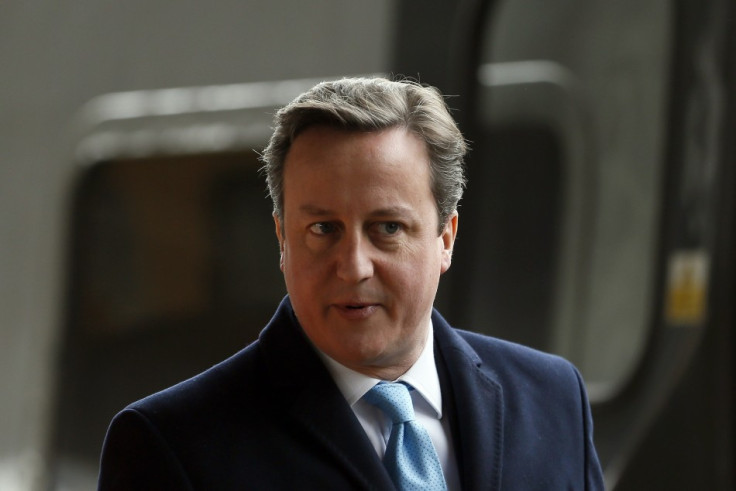What Use is EU Referendum without Article 50 Exit Strategy? [BLOG]
David Cameron does not seem to have been properly advised on all the options open to him

David Cameron's long-awaited and much-postponed speech on Britain and her role inside or outside the European Union was not quite as earth-shattering as some people make out but it has generated a great deal of discussion.
On the assumption that 2017 will see an in/out referendum across the United Kingdom, campaigning has started on both sides, with numerous pronouncements from many of the usual suspects about the country not managing to survive outside the EU for various reasons, while others asserting that trade can be continued and Britain will be able to cope very well.
The comments, for the present, remain general though it is clear that the arguments will have to go into complicated and unpalatable details.
The promised referendum is not unconditional. In the first place, the Conservatives will have to win the 2015 general election and win it outright. The Labour leader, Ed Miliband, has already stated that his party opposed the idea of a referendum and considers, without any evidence, that even the promise of one is a destabilising factor.
Of course, he may well find that as we come closer to the date of the election, pressure from his own party and its supporters will make him change his mind. The Liberal Democrats, despite being the only party that mentioned an in/out referendum in the last election, is vehemently against it.
Cosmetic changes
The other half-formulated condition is that the prime minister uses the interim period to negotiate what he calls a different relationship with the EU or, in other words, different conditions for Britain's membership as he has made it absolutely clear that he does not contemplate the country being outside the Union.
In order to achieve a different relationship, the prime minister will have to negotiate some of the powers that have been given to the EU and have become part of the acquis communautaire back to the British government and parliament. While he may achieve a few cosmetic changes (and there is some indication that Chancellor Merkel is open to negotiations on that even if others might not be) any serious rearrangement of power requires a completely new treaty, which would need the unanimous agreement of all member states.
There is, in fact, no mechanism whereby power can be handed back to a member state of the EU on a permanent basis and Mr Cameron's ideas of achieving that are based on a probable ignorance of what the treaties say. Why he has not been told the truth by any of his advisers is a serious problem.
Nor do they seem to have alerted him to the fact that the Lisbon Treaty provides, if not a mechanism for repatriation, then something even better: an exit strategy. In effect, Article 50 of the new treaties gives two different ways for a member state to exit the European Union, a negotiated one that would provide that elusive different relationship and a unilateral one, whereby the exiting state merely alerts the rest of the EU that it intends to leave in two years' time.
David Cameron could, at any time, using the Royal Prerogative, activate the existing Article 50, notify the European Council through its president, Herman Van Rompuy, and begin those negotiations, using the threat of a unilateral exit as a long-stop.
Those negotiations might take a long time and, during them, the country wishing to leave, would participate in all other processes in negotiations though it will not be represented in the European Council or other ministerial councils when the actual negotiations are conducted. That makes perfect sense. No country can negotiate with itself, which is what this would amount to.
Once the negotiations initiated by Mr Cameron invoking Article 50 are concluded a referendum might be in order. After all, there is some point in asking the people of this country whether they accept the new arrangements.
On the other hand, this might be solved by calling a general election. However, there is a need for a few decisions first. As long as the prime minister maintains that, come what may, Britain will stay in the EU, there can be no real renegotiation of terms. So a decision needs to be taken that a completely new arrangement is to be reached that will mean an existence outside the European Union though not necessarily outside the European Economic Area.
Other arrangements are also possible. Having made that decision and before Article 50 is invoked negotiators need to have some ideas as to what they want to achieve and what kind of agreements they would prefer to sign. This sounds long and complicated but, at least, it will achieve results. The promise of a referendum in a vacuum will achieve very little.
Helen Szamuely is the author of the 'Your Freedom and Ours' blog: http://yourfreedomandours.blogspot.co.uk/
© Copyright IBTimes 2024. All rights reserved.





